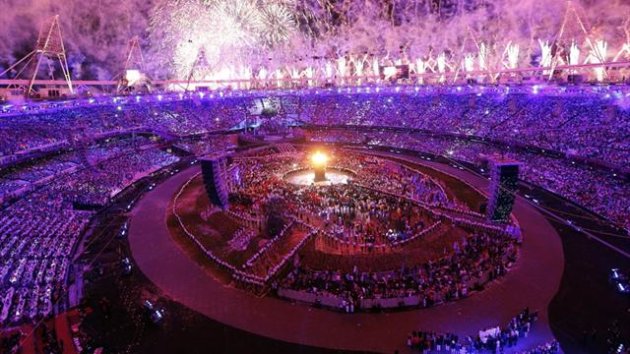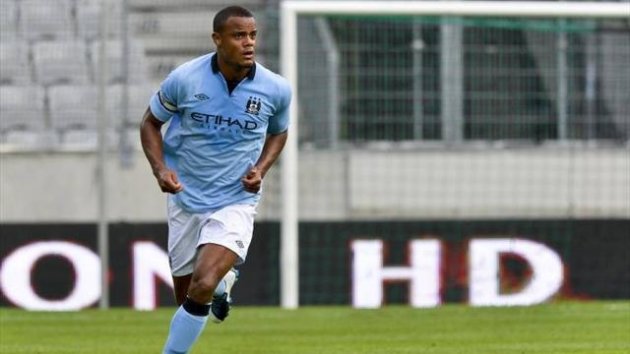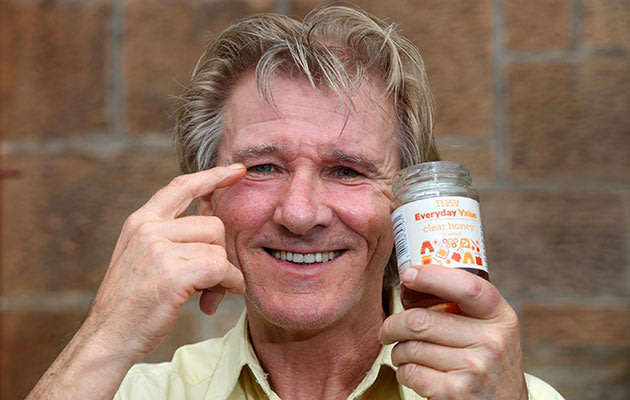Seven teenagers lit the Olympic cauldron at an opening ceremony starring the Queen and seen by millions around the world, in a touching finale to a high-octane, musical celebration of British history and culture.

True to the London Games' motto of 'Inspire a Generation', organisers put unknown youngsters in the global limelight rather than established sporting greats in the closing act of a madcap four hours of comedy, spectacle, noise and emotion.
"I declare open the Games of London celebrating the 30th Olympiad of the modern era," said Queen Elizabeth, the 86-year-old monarch, followed by a fanfare and explosion of fireworks.
The ceremony on a cool, cloudy but dry London night kicks off 16 days of sporting thrills and spills up and down the country, as more than 16,000 athletes from 204 countries vie for the Holy Grail of sport - Olympic gold.
Celebrating her 60th year on the throne this year, the monarch played a starring role in a ceremony which film director Danny Boyle turned into an unabashed celebration of the host nation stamped with an unmistakeably cinematic style.
Early on in the show, which ran well over time, Her Majesty appeared in a short, tongue-in-cheek film also starring Daniel Craig in his role as James Bond.
Wearing his trademark tuxedo, 007 enters Buckingham Palace and the queen, with two corgis at her feet, turns from a writing desk and says simply: "Good evening, Mr Bond".
The moment drew a huge cheer from the crowd, not used to seeing Her Majesty play such an informal part in proceedings, and coincided with a resurgence in the royal family's popularity following the 2011 wedding of Prince William and Kate Middleton.
Doubles of Bond and the queen then parachuted from a helicopter above the stadium, built on the Olympic Park in a once derelict area of London's East End, before schoolchildren sang the national anthem and the Union flag was raised.

The quintessentially British flavour to the ceremony, accompanied by a stunning soundtrack of hits from Elgar to U2, caused plenty of confusion among international journalists struggling to describe it to readers back home.
"It couldn't get any more British if it came drenched in tea," quipped the Hollywood Reporter movie magazine.
But others from abroad warmed to Boyle's vision.
"It really played to what Britain does best," said Sarah Clarke, a visitor from South Africa, as she left the stadium after the show. "It was a British ceremony but absolutely we felt included."
The ceremony, inspired by Shakespeare's "The Tempest", began with Britain's first Tour de France winner Bradley Wiggins ringing a giant 23-tonne Olympic bell.
Played out before world leaders, European royalty and dignitaries including US First Lady Michelle Obama, the show switched to the playful recreation of an English rural idyll with grassy meadows, fences, a water mill and maypoles.
A cast including shepherdesses, sheep, geese, dogs and a village cricket team filled the stage during the one-hour prologue to the show that included a dramatic, low-level fly-past by the jets of the Royal Air Force's Red Arrows stunt team.
After "England's green and pleasant land" came the "dark Satanic mills" of William Blake's famous poem.

Titled "Pandemonium", the next phase saw the grass uprooted and fences torn down to be replaced by a blackened landscape of looms and foundries that conjured the Industrial Revolution.
To the deafening beat of hundreds of drummers, giant chimneys rose from the ground and began to belch smoke as a small army of volunteers, dressed as 19th century factory workers, forged one of the five Olympic rings.
The giant orb was raised to the sky to join the four others, letting off a fountain of sparks and drawing gasps from many in the audience.
All around, especially designed "pixel" light boxes installed next to every seat accompanied each scene and created giant images of waves, flags and words.
In the second of three "acts", Boyle paid homage to the National Health Service, an emotive subject in Britain where people hold the right to free health care close to their hearts.
Hundreds of dancing and roller-skating nurses and doctors pushed beds on to the now empty stage and when the beds were illuminated, they spelled "GOSH" for the cherished Great Ormond Street children's hospital in London.
"The atmosphere was electric coming out into the stadium - like we could take over the world with our beds!", said Rachel Dobbin, a speech and language therapist from London who performed as a nurse in the ceremony.
Giant representations of famous villains from English literature, including JM Barrie's Captain Hook, JK Rowling's Voldemort and Ian Fleming's Childcatcher, rose from their beds.
They were quickly vanquished by dozens of Mary Poppins characters descending from cables criss-crossing the stadium roof, carrying brightly illuminated umbrellas.

Comedian Rowan Atkinson, adopting the globally recognised character of mischievous Mr Bean, brought the house down as he joined the London Symphony Orchestra playing a single note throughout the score of the Olympic film "Chariots of Fire".

The final act, starring hundreds of young nightclubbing dancers, was a breathless journey through popular British culture over the last five decades featuring music from everyone from the Sex Pistols to Queen and the Jam to the Who.
Sitting at a computer outside a small house on stage was Tim Berners-Lee, the Londoner who invented the worldwide web and enabled the explosion of social networking that is playing a major part at the London Games.
Mid-ceremony he tweeted to his almost 83,000 followers "This is for everyone" which also projected across the spectators.
Next came the parade of athletes, with the Greek team keeping up Olympic tradition and leading out thousands of competitors dressed in colourful national costumes.
They marched around the stadium in double-quick time, urged on by the up-tempo beats of the Bee Gees band and others. The world's fastest man Usain Bolt strode confidently with the Jamaican flag while playing up to cameras and cheering fans.
Libya and Egypt represented a new chapter in their histories after the tumultuous events of the Arab Spring while the first ever female Olympic athletes from Saudi Arabia, Brunei and Qatar made appearances.

Britain, dressed in white and gold and hoping to repeat its medals success of Beijing in 2008, entered last to thunderous roars and the thumping strains of David Bowie's lyrics "We Can Be Heroes" as ticker tape floated down from the roof.
Boxing's most famous fighter Muhammad Ali briefly appeared to hold the Olympic flag, looking frail, wearing dark glasses and leaning on his wife.
The Olympic torch, ending an 8,000-mile odyssey across the country, was driven in a speedboat up the River Thames by former England football captain David Beckham and handed to Britain's most successful Olympian Steve Redgrave.

He then passed it on to seven youngsters - Callum Airlie, Jordan Duckitt, Desiree Henry, Katie Kirk, Cameron MacRitchie, Aidan Reynolds and Adelle Tracey - who performed a lap of honour before approaching the centre of the stage.
Surrounded by thousands of athletes, they lit some of the 200-plus copper petals which rose on stalks to form a single burning "flower".

Ex-Beatle Paul McCartney rounded off a night when music played non-stop, and at concerts across the capital, with a nostalgic sing-along of his old band's hit "Hey Jude".
![Pro Green, will you take us to NY? Copyright: [wenn]](http://l3.yimg.com/bt/api/res/1.2/0iVBjXZCCThgxLJ3.wCr3w--/YXBwaWQ9eW5ld3M7cT04NTt3PTYzMA--/http://media.zenfs.com/en-GB/blogs/the-juice/millie-pro-green.jpg)
![Millie tweeted she had a great day. Copyright: [twitter/millsmackintosh]](http://l2.yimg.com/bt/api/res/1.2/Ir_Jfd4pwPsVyfoPNulwOg--/YXBwaWQ9eW5ld3M7cT04NTt3PTYzMA--/http://media.zenfs.com/en-GB/blogs/the-juice/Millie-Twitter-pro-green-1.jpg)
![Pro Green was not happy the paps were around. Copyright: [wenn]](http://l.yimg.com/bt/api/res/1.2/JH0qZRpBcj2BHNYgECTzfA--/YXBwaWQ9eW5ld3M7cT04NTt3PTYzMA--/http://media.zenfs.com/en-GB/blogs/the-juice/progreenmilie.jpg)
![Pro Green's wallet best get ready! Copyright: [rex]](http://l2.yimg.com/bt/api/res/1.2/w8A__KXW0a3qJVV1U87_pg--/YXBwaWQ9eW5ld3M7cT04NTt3PTYzMA--/http://media.zenfs.com/en-GB/blogs/the-juice/millie-pro-green-2.jpg)
![Jodie is on holiday. We are not. Not FAIR! Copyright: [twitter/jodiemarsh]](http://l3.yimg.com/bt/api/res/1.2/xMjm5q_uWBKYz6uKGXVIVA--/YXBwaWQ9eW5ld3M7cT04NTt3PTYzMA--/http://media.zenfs.com/en-GB/blogs/the-juice/Jodie-Marsh-bikini-2.jpg)
![Jodie did lots of tweeting from the beach. Copyright: [twitter/jodiemarsh]](http://l3.yimg.com/bt/api/res/1.2/dqUF_9QRFZ3zF3wJjat5aA--/YXBwaWQ9eW5ld3M7cT04NTt3PTYzMA--/http://media.zenfs.com/en-GB/blogs/the-juice/jodiemarshbikini3.jpg)
![Would have rather had a Sea Breeze. Copyright: [twitter/jodiemarsh]](http://l3.yimg.com/bt/api/res/1.2/bP4OSkE_7IoZLBe8f7iY6g--/YXBwaWQ9eW5ld3M7cT04NTt3PTYzMA--/http://media.zenfs.com/en-GB/blogs/the-juice/jodie-protein.jpg)
![Kristen Stewart with Rupert Sanders during the promo trail for Snow White and the Huntsman. Copyright [Rex] Kristen Stewart and Rupert Sanders](http://l3.yimg.com/bt/api/res/1.2/PBs1meW52uR6YLz0._scFw--/YXBwaWQ9eW5ld3M7cT04NTt3PTYzMA--/http://media.zenfs.com/en-GB/blogs/the-juice/kristen-stewart-cheats-rupert-sanders.jpg)
![Nicki Minaj has reportedly asked for a separate Winnebago for her wigs. Copyright [Wenn] Nicki Minaj](http://l2.yimg.com/bt/api/res/1.2/Womkm4XE6qxFSSsEyn5LLg--/YXBwaWQ9eW5ld3M7cT04NTt3PTYzMA--/http://media.zenfs.com/en-GB/blogs/110-pop/nicki-minaj-wigs.jpg)
![Nicki Minaj has a load of other hair requests too. Copyright [Wenn]](http://l3.yimg.com/bt/api/res/1.2/kgSQXAAYRAeUiJntkzmkVw--/YXBwaWQ9eW5ld3M7cT04NTt3PTYzMA--/http://media.zenfs.com/en-GB/blogs/110-pop/nicki-minaj-wigs2.jpg)











![Kerry looked a little wobbly leaving the club. Copyright: [wenn]](http://l.yimg.com/bt/api/res/1.2/jpX_m7OH6OePO0hngbVhww--/YXBwaWQ9eW5ld3M7cT04NTt3PTYzMA--/http://media.zenfs.com/en-GB/blogs/the-juice/Kerry-drunk.jpg)
![We all need a mate like this guy. Copyright: [wenn]](http://l3.yimg.com/bt/api/res/1.2/firGYWCysxHSa2RoBZvrSA--/YXBwaWQ9eW5ld3M7cT04NTt3PTYzMA--/http://media.zenfs.com/en-GB/blogs/the-juice/kerry-katona-mate.jpg)
![Hands up who hasn't ended up on one of these? Copyright: [wenn]](http://l1.yimg.com/bt/api/res/1.2/FhWNfv0Irjd0S7gZJ3Obzw--/YXBwaWQ9eW5ld3M7cT04NTt3PTYzMA--/http://media.zenfs.com/en-GB/blogs/the-juice/Kerry-Katona-rickshaw.jpg)





















